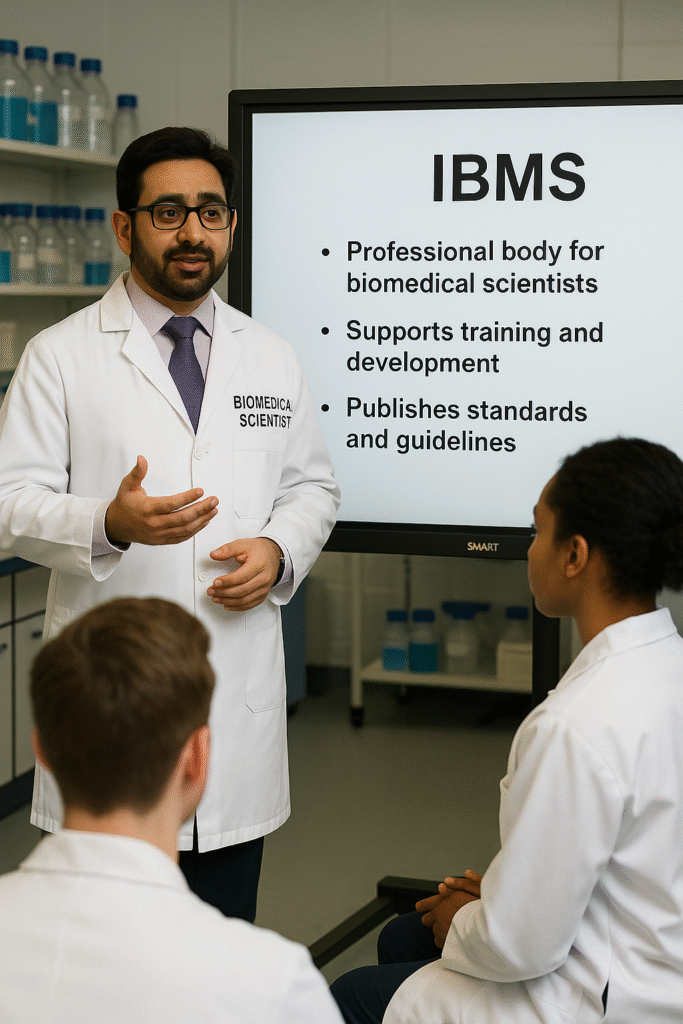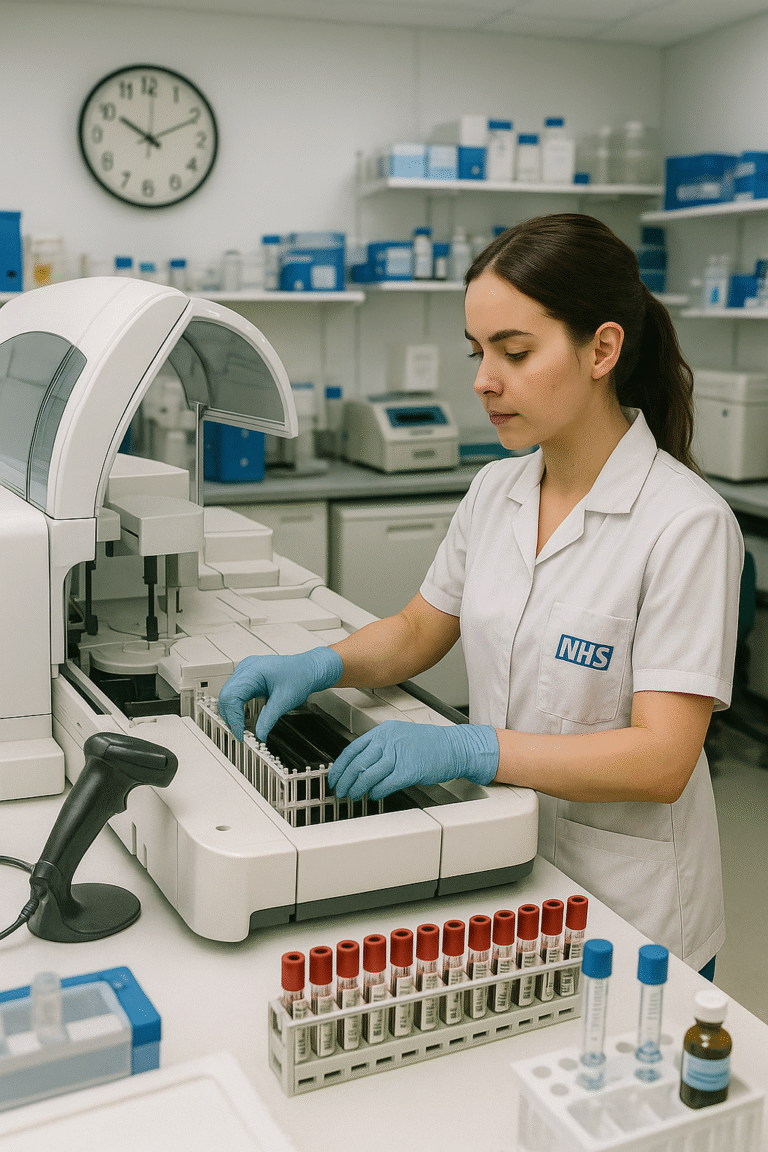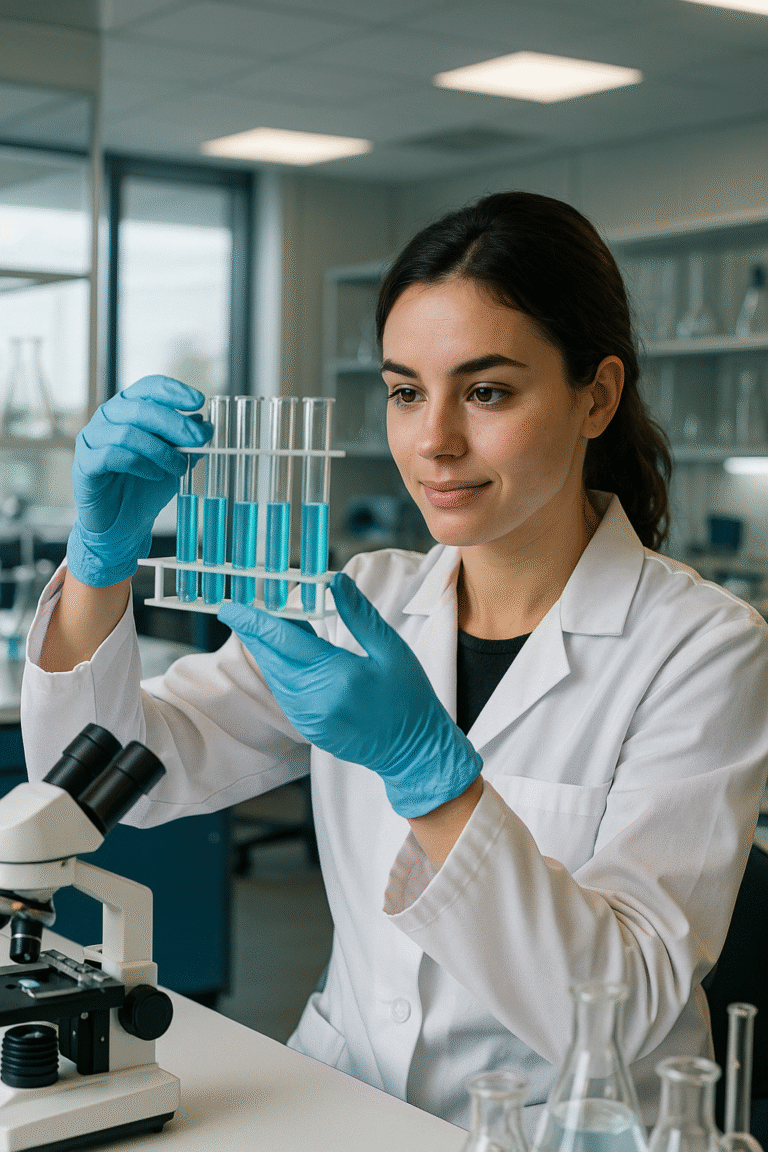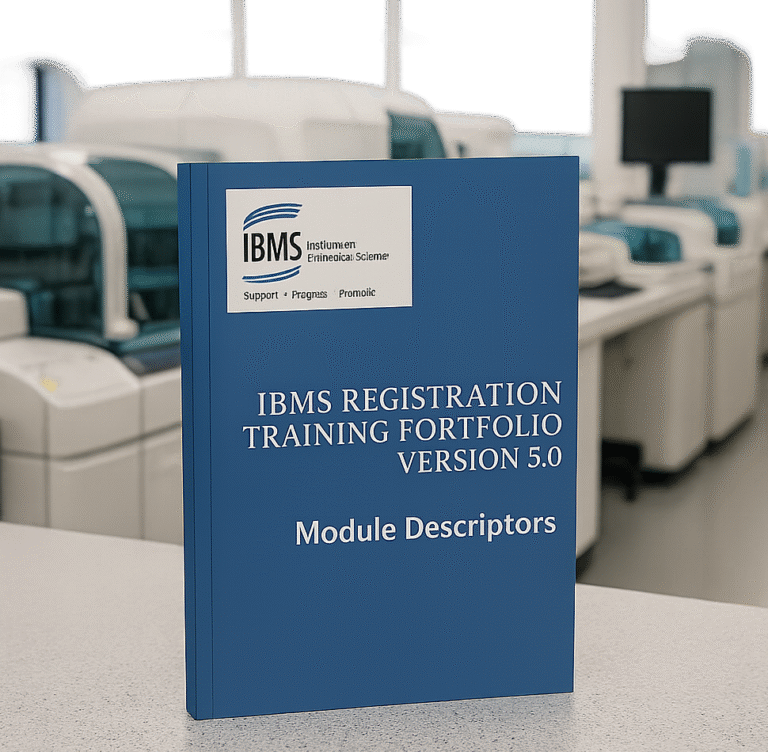The Institute of Biomedical Science (IBMS) is the UK’s leading body for the education and professional development of biomedical scientists. Through its accredited degree programs, structured training portfolios, and lifelong learning initiatives, the IBMS plays a vital role in shaping a competent, regulated, and research-active healthcare workforce.
By Ayyaz Ahmad | LabPathPro.com
1. Accreditation of Academic Programs
One of the most important educational roles of the IBMS is the accreditation of undergraduate and postgraduate biomedical science degrees. This process ensures that university courses meet the necessary academic and professional standards, aligning with HCPC registration requirements. Students graduating from IBMS-accredited programs are equipped with the scientific knowledge and practical skills necessary for laboratory practice.
IBMS accreditation is not just a quality benchmark; it is essential for students aiming to become HCPC-registered biomedical scientists.
2. Registration Portfolio and HCPC Readiness
The IBMS Registration Training Portfolio is a structured framework that students and trainees must complete to demonstrate their competency to practice as biomedical scientists. The portfolio is assessed by an IBMS-verified external examiner, and successful candidates receive a Certificate of Competence, enabling HCPC registration.
This model ensures that new practitioners have not only academic knowledge but also applied laboratory experience, promoting both safety and efficiency in clinical diagnostics.
3. Continuing Professional Development (CPD)
The IBMS also mandates and supports Continuing Professional Development (CPD) to maintain professional standards. Through events, webinars, workshops, and scientific publications, biomedical scientists remain up-to-date with emerging technologies, research, and best practices.
The IBMS CPD scheme is recognized by the HCPC and provides members with tools to plan, document, and reflect on their learning, which is critical for career progression and professional accountability.
4. Specialist Portfolios and Career Progression
Beyond initial registration, the IBMS offers a range of specialist portfolios and higher qualifications, including:
- Specialist Diploma
- Higher Specialist Diploma
- Chartered Scientist (CSci) registration
- Fellowship (FIBMS)
These qualifications serve as structured pathways for professionals seeking to advance into specialist roles, lab management, research leadership, or academic teaching.
For example, the IBMS Specialist Diploma is often pursued by experienced scientists seeking recognition and promotion within the NHS Band system.
A Hub for Research and Professional Advocacy
The IBMS is not only an educator but also a voice for biomedical science in policy, healthcare strategy, and public communication. It publishes the British Journal of Biomedical Science, a peer-reviewed journal that showcases cutting-edge research from professionals in the field. The journal also serves as an educational resource for students and practitioners working toward advanced qualifications.
Global Impact and Collaboration
While primarily based in the UK, the IBMS’s influence extends internationally through its collaborations with global health agencies, educational institutions, and research networks. Its model of regulated training, continuous education, and professional recognition is admired and emulated by allied institutions abroad.
The IBMS stands as a cornerstone of the biomedical science profession. From undergraduate education to post-registration development, its systems of accreditation, assessment, and CPD uphold the integrity and competence of biomedical scientists. In doing so, the IBMS ensures that the professionals at the heart of diagnostic medicine are not only well-trained but also continuously evolving to meet the challenges of modern healthcare.
Whether you’re a student entering the field or a seasoned practitioner pursuing advanced credentials, the IBMS offers the structure, support, and recognition necessary to succeed.
Sign up for free class
It’s easy and free!










